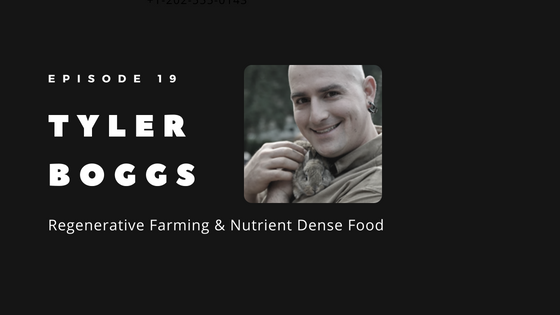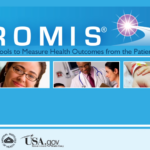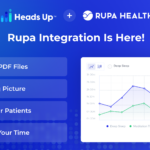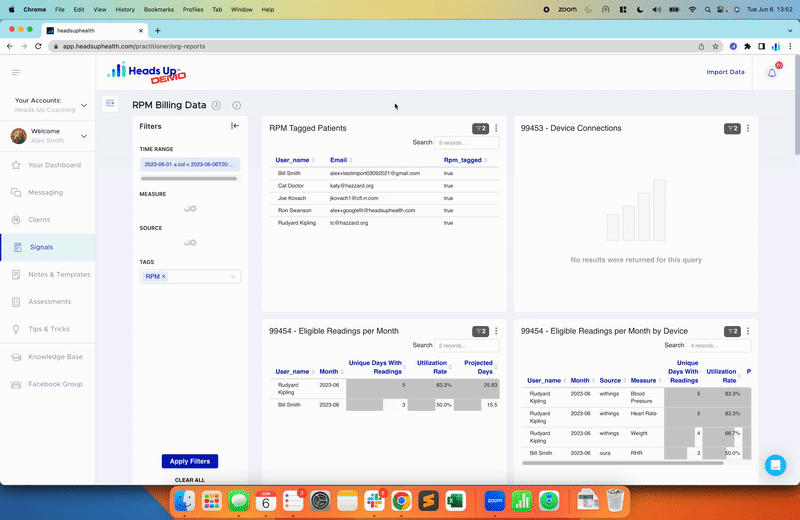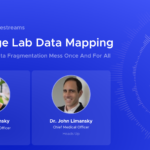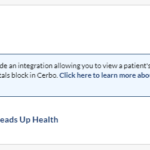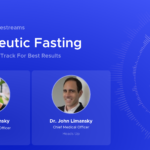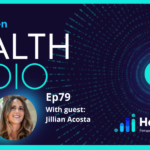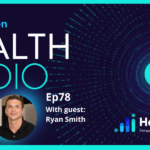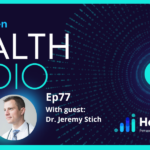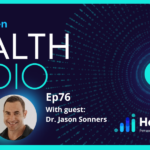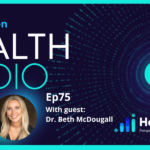Podcast: Play in new window | Download
Subscribe: Apple Podcasts | RSS
Tyler Boggs and his wife Elizabeth own and operate Heart 2 Heart Farms and believe that sustainability in farming, while important, is not enough. Enter regenerative farming.
After having retired from the military, they both set out to find a new path, wanting to get out of the city. They bought some land outside of Portland, Oregon and began growing their own food. At first they just wanted to support themselves but as they became more aware of the way foods were commercially produced, quickly realized there was a need to support their community in accessing quality meats and produce free from antibiotics, hormones, and chemicals.
Their farm has evolved from simply growing food and raising animals to now farming and educating individuals who want to understand better how a regenerative farm operates. They give back to their community by running a food pantry where they give away 100,000 lbs of food every week for free through their work/trade program.
Heart 2 Heart Farms provides food, consultations, teaching and education on how to build a regenerative food system and how to source high-quality foods, especially when on a limited budget.
Always willing to talk farming, environmental impact, and nutrition, Tyler Boggs tells Dave Korsunsky of Heads Up Health all about the farm that has grown from feeding just his own family to now educating and feeding thousands.
Listen and learn more about how regenerative farming is different, and a step up, from sustainable agriculture.
You can learn more about Heart 2 Heart Farms through their website or Facebook and about Elizabeth Boggs Nutritional Therapy practice at Heart2HeartHealth.
Listen to our podcast in iTunes!
This podcast is brought to you by Heads Up Health, a web app designed to help you centrally track all of your vital health data. Instantly synchronize your medical records, connect your favorite health devices like MyFitnessPal, the Oura Ring, and other apps and use your data to optimize your health!
Click on the button below to start your free 30-day trial. Or, read on for more information about our latest podcast episode!
[maxbutton id=”5″ url=”https://headsuphealth.com/” ]
In this podcast you’ll learn:
- What regenerative farming is and how it’s different from sustainable farming [4:00]
- About Tyler and his wife’s transition from military life to farming [5:35]
- How industrialized CAFO raised animals differ from regenerative farm raised animals [7:35]
- About a conversation Tyler had with a man who works as a meat washer for conventionally raised meats, and how horrified he was after seeing the wash eat through his sweater when he accidentally spilled it on himself! [8:35]
- How that it only takes two weeks to change the composition of meat when fed grains instead of grass, which is why it’s important to look for grass-finished when purchasing red meat, not just grass-fed [10:20]
- That everyone has access to sourcing, but it does take work to find it [12:50]
- How cortisol raises in animals when transported (all commercial meats are required to be processed in a USDA slaughterhouse) which in turn changes the composition of the meat. [14:10]
- Why you have to meet your farmer if you’re serious about your health, to find out how the animals are raised and slaughtered [15:00]
- Why buying your organic feed from a quality source is important when raising your own animals for food [16:40]
- Why Heart 2 Heart farms raises-mostly USDA exempt meats like alpaca and yak, chukar, quail, duck, pheasants, geese, turkey, rabbit, but also raise a small amount of cow, pig, goats, and sheep for people who want to slaughter their own [17:45]
- Why you should make an appointment to meet your farmer and what that process looks like and how to find a local farmer. [18:45]
- How to search Craigslist for what you want and how to approach the farmer for information. (Hint: be kind.) [20:45]
- Learn about the 3/6/12 month internships that Heart 2 Heart Farms offers to learn about regenerative farming [22:00]
- How one customer can make the difference between a regenerative farm from surviving and not making it [23:30]
- Why regenerative farming costs more, but it’s worth it [25:15]
- Why it takes 16 heads of cabbage today to get the same mineral content of one cabbage in 1952; produce can’t absorb something that’s not present in the soil due to depletion of nutrients. (You can’t judge the nutrient density by looks alone.) [26:40]
- Why the nutrient density of the soil is just as important as what types of food you’re choosing, and how as a result of depletion in our soil (and in turn, our food today) we’re simultaneously malnourished yet overfed. [27:25]
- How getting your foods from local farmers can provide you with foods you’ll never find on supermarket shelves. [31:00]
References
USDA Changes in grass-fed labeling
Changes in nutrient density over time
Our Partners:
Learn more about LEVL, a clinical-grade ketone breath meter, which measures your level of fat-burning and ketosis through a simple breath. Find out more at HeadsUpHealth.com/LEVL.
You can learn more about the Oura ring, a state of the art ring that can track sleep cycle analysis, activity, and recovery at HeadsUpHealth.com/Oura.
Learn more about Keto-Mojo, a highly accurate and affordable device for testing blood sugar and blood ketones. Check it out at HeadsUpHealth.com/Ketomojo.
All of these amazing products are integrated with Heads Up Health.
They all allow you to quantify your health in novel and powerful ways.
Thank you to our partners!
About Heads Up Health
Heads Up Health is a website designed to empower individuals who want to take a self-directed approach to managing their health. Instantly centralize your medical records, connect your favorite devices and apps (e.g., Oura, MyFitnessPal, Keto-Mojo, FitBit, Apple Health, MyMacros+, Withings and many more) and use your data to optimize your health.
Click on the button below to start your free 30-day trial now!
[maxbutton id=”4″ url=”https://headsuphealth.com/” ]
